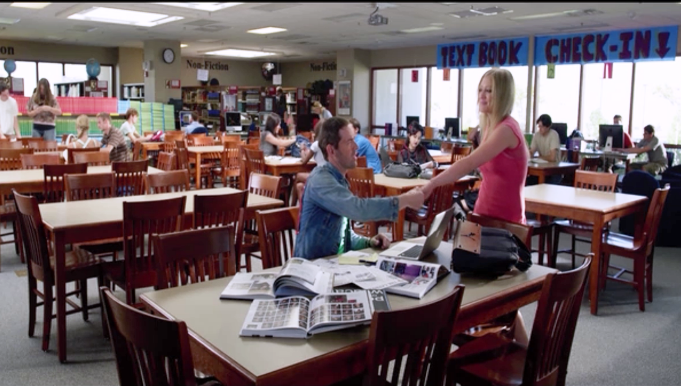I recently attended a teaching circle about Indigenous Studies at my university. This book was provided to all who attended. Like David Reuben's book (
Everything You Wanted to Know about Sex, but were Afraid to Ask
), Treuer's book is written in Q&A format. Unlike Reuben, however, Treuer actually seems to have some authority on the the topic he writes about. He also does not pretend to speak for all Indigenous people, and often points out issues on which different tribes, or individuals have differing opinions. He begins with the question "What terms are most appropriate for talking about North America's first people?" which indeed answered my first question about the use of the word "Indians" in the title of the work and why and he uses the terms Indian and Indians throughout.
Truer also met my low-bar criterion for inclusion on this blog, which is simply: at least one mention of a library or a librarian. The first part of the book treats questions of "Terminology" and includes the question "How can I find out the meaning of place names around me that come from indigenous languages?" Following a little lesson about word roots, along with a bit of geography, he explains that
To find the deeper meaning of the Indian names for the places in which you live, it is often necessary to do a little research. Fortunately, some great books, like Virgil Vogel's Indian Names in Michigan and Warren Upham's Minnesota Place Names, have done a lot of groundwork to help you understand places in the Great Lakes region....There are similar books for other parts of the country-ask your local librarian for advice.
Reading this prompted me to see what my own library had on the subject. A catalog search on place names in New England brought me to the record for a book called
The Real Founders of New England written by Charles Knowles Bolton and originally published in 1929. Mr. Bolton explains in the preface that "History began, as far as New England is concerned, either in 1620 at Plymouth or in 1630 at Boston".
The book does list some Indian names for some New England cities and towns in an Appendix but does not appear to break down any names. The text appears to be useful for researchers who are interested in European view of Native Americans, both at the time of the initial encounter, and how the story was being told in 1929.
The local public library does appear to have a book that might be better for this kind of research
Indian names of places in Plymouth, Middleborough, Lakeville and Carver, Plymouth County, Massachusetts : with interpretations of some of them.



